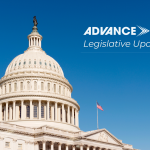Without Limits: A Shared Vision for the Future of Career Technical Education (CTE Without Limits) puts forth a bold vision for a cohesive, flexible, and responsive career preparation ecosystem that will close equity gaps in educational outcomes and workforce readiness, and leverage Career Technical Education (CTE) as a catalyst for ensuring each learner can reach success in the career of their choice. Principle 5 of CTE Without Limits calls for each learner to be able to access CTE without borders, and calls specific attention to meeting the needs of learners without access to high-quality CTE and work-based learning opportunities due to their geographic location. Advance CTE is helping states to actualize this vision principle by offering resources, examples and supports to expand access within and across state lines.
In September 2023, Advance CTE hosted a webinar to share more information about the CTE Without Borders initiative. The event also provided a deep dive into the CTE Without Borders Policy Playbook and how it provides strategies, actions and resources to support expanded access to high-quality CTE and work-based learning and elevated promising practices that have actualized expanded access to meet learner and industry needs in Rhode Island and Texas.
 The Exploring CTE Without Borders webinar featured the following speakers:
The Exploring CTE Without Borders webinar featured the following speakers:
- Michael Gonzalez, Executive Director, Rural Schools Innovation Zone (RSIZ);
- Christina Sedney, Director of Policy and Strategic Initiatives, Policy Analysis & Research, Western Interstate Commission on Higher Education (WICHE);
- Spencer Sherman, Former Vice President of Policy and Partnerships, Linked Learning Alliance; and
- Dale Winkler, Senior Vice President, Southern Regional Education Board (SREB).
All speakers in the webinar supported the development of the CTE Without Borders Policy Playbook and engaged the audience with the following key themes they gleaned from supporting expanded access to high-quality CTE and work-based learning:
- Implement a stakeholder-led approach to expanding access;
- Leverage strong systems, structures and partnerships to sustain expanded access; and
- Codify state policies to expand access within and across states.
Implement a stakeholder-led approach to expanding access
Sherman and Gonzalez shared various promising perspectives and challenges experienced when actualizing expanded access. One recurring advice includes implementing a backward approach to strategizing and actualizing expanded access to high-quality CTE and work-based learning opportunities. Sherman noted that implementing a bottoms-up approach calls on leaders to begin this work by speaking with learners, industry and CTE educators to fully define the issue of CTE access. Leveraging the expertise of stakeholders to define the problem accurately supports leaders with the action planning stage to understand the infrastructure, policy, resources and capacity needed to actualize both in-state and cross-state access that meets learners’ and industry’s needs. Gonzalez reinforced this strategy and identified the need to understand the nuance across geographies to ensure that the labor and resource-intensive actions leaders design and implement effectively serve the regions.
Leverage strong systems, structures and partnerships to sustain expanded access
During the facilitated question and answer portion, Gonzalez and Sherman identified the value of leveraging strong systems, structures and partnerships to begin or enhance expanded access and ensure that the work is sustainable. They both emphasized the importance of strong executive leadership and distinguishing local champions to support the work. Strong executive leadership, like then-Governor Gina Raimondo who championed the Prepare Rhode Island initiative, signals importance and facilitates bringing together multiple agencies and partners to understand how all agencies can work together to expand access. Identification of local champions, like adults or leaders learners interact with day-to-day, allows leaders at the state level to capture a strong understanding of the issues learners experience in CTE programs. With strong executive and local leadership, leaders can then begin to implement systems, structures and processes that work across all partners contributing to expanded access. Establishing strong systems ensures that in the event of personnel or leadership transitions, expanded access sustains and continues to evolve to meet the needs of learners and industry.
Codify state policies to expand access within and across states
Sherman and Gonzalez raised the importance of leveraging state policy to codify expanded access to high-quality CTE and work-based learning. Gonzalez shared examples of policies in Texas that incentivize expanded access within the state through increased funding like the Texas Partnerships Senate Bill 1882 that allowed the Rural Schools Innovation Zone to come to fruition. The legislation, which incentivizes school districts to partner with non-profit organizations like the RSIZ, provides districts engaging in the partnership to receive funding and accountability incentives. Implementing and codifying state policies is another opportunity to ensure the work of expanded access to high-quality CTE remains sustainable to meet labor needs and support learners in achieving their career goals.
Advance CTE staff are available to support CTE leaders in this important work. Please contact Haley Wing, Senior Policy Associate, at [email protected] for more information about this initiative.
To learn more about creating access to high-quality CTE for all learners regardless of geographic location, please visit the Learning that Works Resource Center to access the CTE Without Borders Policy Playbook.
Haley Wing, Senior Policy Associate

